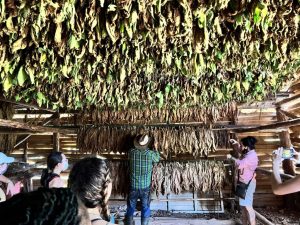
For decades Cuba has been presented as the great “showpiece” of socialism in the Americas. But what does that mean for Cuban workers today? Their conditions are desperate. Most of the population live in extreme poverty. Housing is literally crumbling around people. Blackouts lasting hours and even days are common because the government cannot provide enough electricity. This is not the future we want for workers anywhere.
Defenders of Cuban socialism say that poverty itself is not the issue, since many countries in the region — El Salvador, Honduras, Haiti — are also desperately poor. They point out that imperialism is the cause, which of course is true.
I initially found this response puzzling. Isn’t socialism supposed to offer a better life for workers, not the same level of misery as their neighbors?
They argue that no small country could possibly resist the vast power of the imperialists. But this misses the point. We are communists, not socialists. The real question is not whether socialism can survive, but whether communism can. What would a communist Cuba, led by the ICWP, look like? Could a communist Cuba stand up to imperialism?
I believe the answer is yes, although it would not be easy. The root of socialist Cuba’s desperation is that long ago it committed itself to operating within the world capitalist market. It imports more than 70 percent of its food and pays for it selling sugar, rum, tobacco, and tourism. It must also buy gasoline, which is constantly in short supply. When gasoline runs out, the power goes off, the tractors don’t run, and less sugar is produced — feeding a vicious cycle of dependency.
A communist Cuba could break free of this cycle by rejecting the world market entirely. Imperialism would impose a strict embargo anyway. The only real road forward would be self-sufficiency: producing its own food, building its own housing, and creating its own sources of energy. At first conditions might be primitive, but by mobilizing the masses, Cuba could guarantee that everyone is fed, housed, and clothed. Its fertile soils, forests, and offshore oil deposits are resources that could be harnessed by a communist society.
Early on the Cuban revolutionaries wanted to diversify agriculture and become self-sufficient but that was abandoned in favor of allying with the socialist USSR.
A truly communist Cuba would be a beacon of hope. It would show that the working class can stand up to imperialism, not by retreating into socialism, but by boldly advancing toward communism. It would inspire millions across the Americas and the world to reject illusions and fight for the only real solution: communist revolution.
—Comrade in Canada

